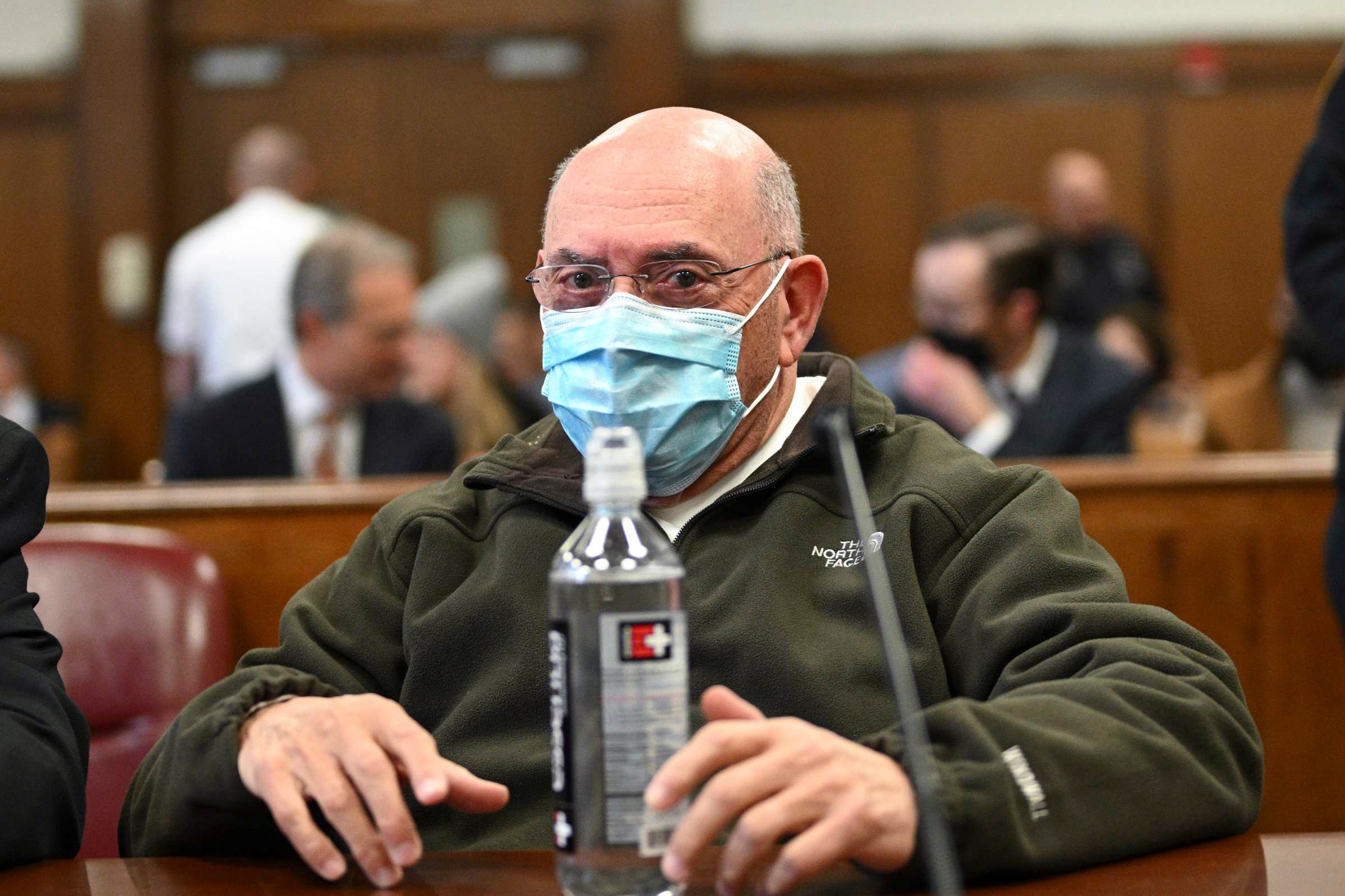Donald Trump’s civil fraud trial resuming with ex-CFO Allen Weisselberg on the witness stand
Donald Trump’s longtime finance chief is set to testify as the former president’s civil trial enters its second week

As Donald Trump’s longtime finance chief, Allen Weisselberg helped spare the former president’s real estate empire from its last existential threat, staving off insolvency after casino bankruptcies and an airline failure in the 1990s.
Now, after a recent jail stint for tax fraud, Weisselberg is front and center again — set to testify Tuesday in the civil trial in New York Attorney General Letitia James’ fraud lawsuit against Trump and his company, the Trump Organization.
Weisselberg, also a defendant in the lawsuit, is expected to testify about his role in preparing Trump’s annual financial statements — including conversations they had while finalizing the documents, which were given to banks, insurers and others to make deals and secure loans.
James' lawsuit alleges that Weisselberg engineered Trump’s financial statements to meet his demands that they show increases in his net worth and signed off on lofty valuations for assets despite appraisals to the contrary.
Trump, who attended the first three days of the non-jury trial last week in Manhattan, is not expected to return to court to see his former chief financial officer testify. An appeals court rejected Trump’s bid Friday to halt the trial while he fights a pretrial ruling that could strip him of Trump Tower and other properties.
Weisselberg, 76, has laid low since leaving a New York City jail six months ago after serving 100 days for dodging taxes on $1.7 million in job perks, including a Manhattan apartment, luxury cars for him and his wife and his grandchildren’s school tuition.
“Over the last number of months, it’s been I’m sure well-documented and well-known that I’ve been through quite a bit,” Weisselberg testified in a May deposition in the civil case.
Weisselberg testified that he was having trouble sleeping, started seeing a therapist and was taking a generic form of Valium as he tried to “re-acclimate myself back to society."
“It’s been a traumatic and difficult time for myself and my family,” Weisselberg told lawyers in the room, including James, according to a deposition transcript made public last month.
“After a long, what I considered a very quiet business — a job that I had over all these years — to be thrown into this situation has had a traumatic impact on my day-to-day life and my family’s life,” Weisselberg said.
Weisselberg has not given interviews or commented publicly since leaving jail.
Trump, in his deposition in April, said of his former lieutenant: “He was with me for a long time. He was liked. He was respected. Now, he’s gone through hell and back. What’s happened to him is very sad.”
Jeffrey McConney, the Trump Organization’s longtime controller, testified at the civil trial Friday that Weisselberg asked him to assist him in committing tax fraud on multiple occasions, including changing payroll records to hide perks and giving his wife a check for a no-show job so she could qualify for Social Security benefits.
McConney said he went along with it because he feared Weisselberg would fire him if he refused.
In a pretrial ruling last month, Judge Arthur Engoron found that Trump and other defendants including Weisselberg committed years of fraud by exaggerating the value of Trump’s assets and net worth on his financial statements.
As punishment, Engoron ordered that a court-appointed receiver take control of some Trump companies, putting the future of Trump Tower and other marquee properties in doubt. An appeals court on Friday blocked enforcement of that aspect of Engoron’s ruling, at least for now.
The civil trial concerns allegations of conspiracy, insurance fraud and falsifying business records. James is seeking $250 million in penalties and a ban on Trump doing business in New York.
At his May deposition, Weisselberg recalled how Trump would sometimes underline or write a question mark next to values he disagreed with, and would quibble about the language the financial statements used to describe his properties.
“I might say beautiful. He might say magnificent,” Weisselberg testified. “I might say it was cute. He would say it’s incredible.”
Weisselberg’s association with Trump’s family dated to 1973, when he answered a newspaper ad for a staff accountant for Trump’s real estate-developer father, Fred, who owned New York City apartment buildings. He started working for Donald Trump in 1986. In his final years, he made $1.14 million a year in salary and bonuses.
Weisselberg’s tax fraud case hastened his exit from the company. According to a severance agreement he signed the day before going to jail, Weisselberg is due to be paid $2 million in eight quarterly installments. That sum is close to the amount of back taxes, penalties and interest he was required to pay as part of his plea agreement.
So far, according to a calendar included in the agreement, Weisselberg has received $750,000 in severance.
___
Follow Sisak at x.com/mikesisak and send confidential tips by visiting https://www.ap.org/tips
Bookmark popover
Removed from bookmarks